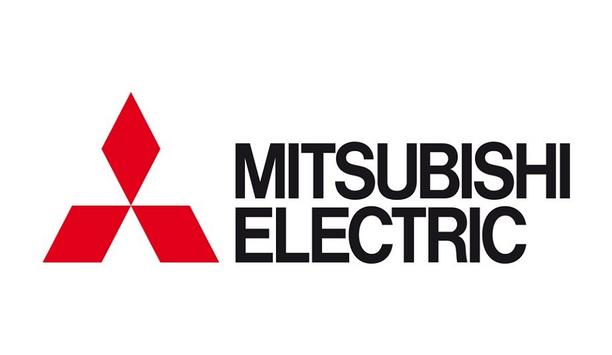A landmark UN scientific study has once again highlighted the short window available to prevent irreversible climate change. Businesses are coming under pressure to dramatically accelerate their net-zero carbon initiatives.
This comes at a time where market dynamism is returning across a range of key sectors following a downturn triggered by the pandemic. Businesses are also being pressured by stakeholders to recover revenues lost during the pandemic and to start rebuilding commercial activity.
Typical supermarket products
With refrigeration sitting at the heart of some of the biggest industries across the globe, including food commerce, healthcare, manufacturing and technology, decisions on refrigerant technology tap into the heart of the debate around environmental credibility, consumer expectations and economic recovery. So how can businesses balance the need to adopt more environmentally-preferable refrigerants with the urgent need to boost revenues?
The technology factors into many of the most important facets of modern society
Often when you think of refrigeration, you instantly think of cold storage and supermarket refrigeration. Without refrigerants, we wouldn’t be able to extend the life of many typical supermarket products or have the convenience of home storage. However, that isn’t the only role refrigeration play in our daily lives. In fact, the technology factors into many of the most important facets of modern society. The healthcare sectors, for example, would struggle to reduce the spread of infection without the use of modern air-conditioning, while the pharmaceutical industry requires refrigeration to store life-saving medications.
Preserving human life
On top of this, the digital revolution would not be possible. Without coolants, the data centers run by companies such as Amazon, Facebook and Google would overheat, resulting in system failures and service outages. And finally, with temperatures rising across the planet because of global warming, and heatwave events becoming more common, refrigeration is increasingly important to preserving human life. Without refrigerants, recent extreme weather events would have been even more devastating.
However, although refrigeration has been a solution for many human challenges, finding a refrigerant that is both safe and environmentally preferable is a challenge. In fact, before recent breakthroughs, many of the chemicals used as refrigerants, such as ammonia, sulphur dioxide, carbon dioxide and methyl chloride, were poisonous, corrosive and even explosive.
Non-Flammable alternative
CFCs were found to be extremely harmful to the ozone layer and were therefore phased out
In the 1930s, a compound called chlorofluorocarbons (CFCs) was commercially introduced as a non-toxic, non-flammable alternative to established refrigerants and was in widespread use for a variety of applications by the mid-20th Century. However, CFCs were found to be extremely harmful to the ozone layer and were therefore phased out in favor of hydrofluorocarbons (HFCs).
The story wouldn’t end there, however, as HFCs were found to be potent greenhouse gases with high global warming potential (GWP). EU regulators therefore demanded their phase-out from 2016. By 2024, HFCs must be phased out so industries have been scrambling to find alternative low-global-warming-potential solutions.
Unique chemical bonds
The answer came in the form of hydrofluoroolefins (HFOs), developed by renowned chemist, Rajiv Singh. HFOs are known for their unique chemical bonds, which allow them to break down in just a few days, so they don’t linger in the atmosphere if released and therefore don’t meaningfully contribute to global warming. Since launching its Solstice line of HFO refrigerants in 2012, Honeywell has averted the production of more than 200 million metric tons of greenhouse gases, equivalent to emissions from more than 42 million cars, more than all passenger cars in Germany.
Honeywell has averted the production of more than 200 million metric tons of greenhouse gases
The automotive industry was one of the first sectors to recognize the strengths of HFOs. During the past 10 years, nearly 75 million cars made in Europe have been fitted with HFO-based air conditioning systems. Supermarkets have also been reaping the benefits; more than 30,000 grocery stores currently use Honeywell’s non-flammable HFO refrigerant, Solstice N40, reducing their energy consumption by 10% and their global warming potential by a factor of three.
Residential heat-Pumps
HFOs are on the brink of being adopted for domestic use as well. New Honeywell HFO solutions are ideal for residential heat-pumps which enable the elimination of fossil fuel burning in our homes, for heating and for hot water generation.
HFOs superior performance deliver ‘best-in-class’ energy efficiency, hence enabling heat pumps to generate more renewable energy from the waste heat vs. alternative solutions. As enablers for energy efficient solutions and systems, HFOs also offer unique opportunities for future developments such as domestic air conditioning, cooling of electronic vehicle batteries and the fast growth of data center cooling. The ‘Green Deal’ is EU flag ship regulation on climate and economy recovery. Overall, buildings are responsible for about 40% of the EU’s total energy consumption, and for 36% of its greenhouse gas emissions from energy.
Greenhouse gas emissions
These new regulations and the corporation sustainability goals create a range of new opportunities
To make it specific, heating and cooling, in the EU is responsible for 80% of energy consumed in residential buildings. Rapid adoption of Heat pumps and improved energy efficient solutions; are key contributors for Europe to reach the ‘Green Deal’ goal of being carbon neutral by 2050 and the recently adopted accelerated ‘fit for 55’ goal to reduce net greenhouse gas emissions by at least 55% by 2030.
Adopting Low Global warning refrigerant, safe & energy efficient cooling solutions and replacing fossil fuel burners with heat pump systems to generate heat; are also key contributors to corporations’ sustainability goals (ESG). These new regulations and the corporation sustainability goals create a range of new opportunities for HFO solutions. As the popularity of HFOs grows, they’ll have a major role in mitigating climate change and enabling a carbon neutral economy.
Pharmaceutical supply chains
Happily, what’s good for the environment is also good for the economy. HFO production is already creating thousands of long-lasting jobs. The global pandemic stopped many people from enjoying a range of everyday pleasures such as visits to sporting events, restaurants and cinemas; activities at venues that are often reliant on some form of air conditioning and refrigeration, a sharp reminder of the role played by modern refrigerants.
The technology continues to develop and evolve ensuring that a range of activities can continue to happen. From protecting the food and pharmaceutical supply chains to ensuring the continued operation of modern communication technology, next generation refrigerants will support some of the most important parts of the modern economy and a better environment.



















